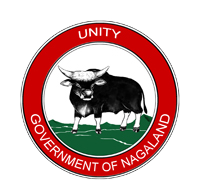Agri Expo
The State Agri Expo office (Erstwhile NER Agri Expo) is located at 4th Mile Dimapur, which is bounded on the east by the Dimapur-Kohima Highway (NH-29) West by Diphupar ‘B’ village, North by Diphupar village and south by Green Park was part of the area measuring 25,768.4 acres declared as “Rangapahar Reserved Forest” by Governor council vide Notification No. 58-R dt. 08.01.1924. Subsequently, in 1966, the Govt. of Nagaland by Notification No. FOR-129/65 dt.01.07.1966, released the area measuring about 4896 acres from reserved forest for the purpose of Sugarcane cultivation to feed the proposed Sugar Mill. Out of the deserved forest, the Agri…
Read more
IETC
The most famous Agriculture Extension Project “Jamuna Par Punar” (recruitment of village level workers) was introduced into the extension system for the first time in India in the year 1948 – 49 by Dr. A. T. Mosher. Based on this project the first planners of our country took the idea of the “village level worker” as a community development model. This has been adopted by eleven countries of the world…
Read more
KVKs
The four (4) Krishi Vigyan kendras started functioning under the administrative control (Host) of the Department of Agriculture, Government of Nagaland. The Kendras are situated at Tesophenyu-Kohima, Yisemyong-Mokokchung, Kuthur-Tuensang and Aboi-Mon. It is a centrally sponsored scheme funded by Indian Council of Agriculture, New Delhi. The operational area of KVK is for the entire district. The total strength of each Kendra is sixteen (16), headed by a Senior Scientist, six subject matter specialist, four programme assistant, one stenographer, two drivers and two supporting staffs…
Read more
SARS
Established in the year 1988, the State Agricultural Research Station (SARS) is located at Yisemyong, 15 km from the district headquarter Mokokchung and situated at an elevation of 1085 msl. The 190 acres campus of the research station is endowed with various kinds of vegetational types and micro habitats such as evergreen, semi deciduous, riverine, rocky, marshy etc. The sub tropical climatological features, well developed TRC fields and well developed area for upland rice cultivation provide ideal ecological conditions for the natural growth of rice species. Besides, SARS also operate two sub-stations one at Tuli and another at Wokha…
Read more


